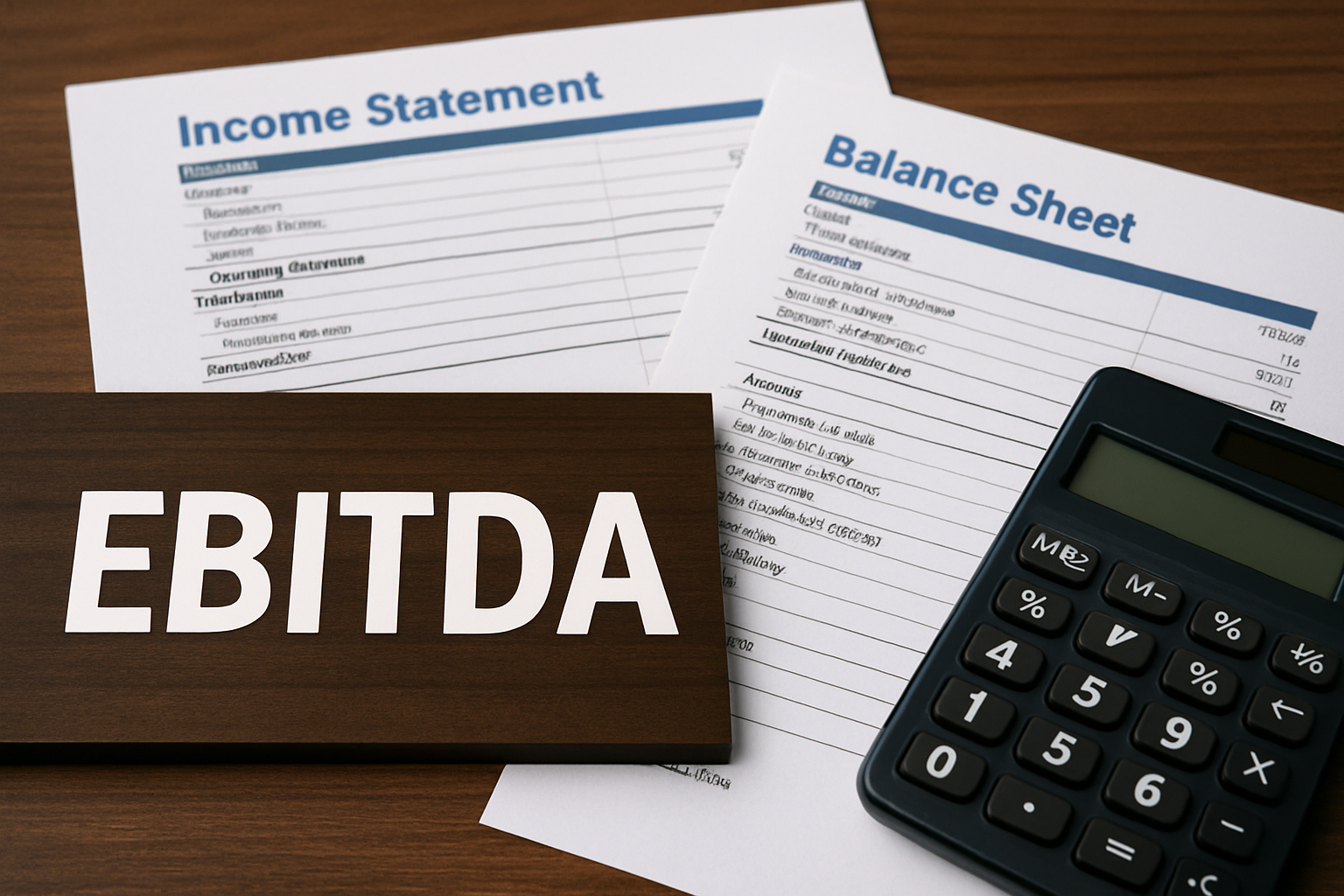Basic Accounting Terminology Every Small Business Owner Should Know

As a small business owner, understanding basic accounting terminology is essential for managing your finances and making informed decisions. While accounting can be intimidating for those who are unfamiliar with the terminology, learning the basics can go a long way in helping you manage your business finances effectively. Here are some essential accounting terms you should know:
1. Balance Sheet
A balance sheet is a financial statement that shows a company's assets, liabilities, and equity at a specific point in time. It provides a snapshot of a company's financial position and is often used to evaluate the business's financial health.
2. Income Statement
Also known as a profit and loss statement, an income statement shows a company's revenues, expenses, and net income over a specific period of time. It is used to evaluate a business's profitability and financial performance.
3. Accounts Receivable
Accounts receivable are amounts owed to a company by its customers for goods or services that have been delivered but not yet paid for. It is considered an asset on the balance sheet.
4. Accounts Payable
Accounts payable are amounts owed by a company to its suppliers or vendors for goods or services that have been received but not yet paid for. It is considered a liability on the balance sheet.
5. Cash Flow Statement
A cash flow statement shows a company's inflows and outflows of cash over a specific period of time. It helps business owners understand how cash is being generated and used, and is essential for managing cash flow and making financial decisions.
6. Depreciation
Depreciation is the process of allocating the cost of a long-term asset over its useful life. It is a non-cash expense that reduces the value of an asset on the balance sheet over time.
7. Gross Margin
Gross margin is the difference between a company's revenue and the cost of goods sold. It is an important metric for evaluating a company's profitability and pricing strategy.
8. Equity
Equity is the value of a business's assets minus its liabilities. It represents the portion of a company that is owned by its shareholders and is shown on the balance sheet.
9. General Ledger
A general ledger is a master record of all the financial transactions for a company. It includes accounts for assets, liabilities, revenue, expenses, and equity.
10. Accrual Accounting
Accrual accounting is a method of accounting that records revenues and expenses when they are earned or incurred, regardless of when cash is received or paid. It provides a more accurate picture of a company's financial performance over time.
Conclusion
In conclusion, understanding basic accounting terminology is essential for small business owners who want to manage their finances effectively. By familiarizing yourself with these terms, you can make informed financial decisions, evaluate your business's financial health, and communicate effectively with your accountant or financial advisor. With this knowledge, you'll be better equipped to take control of your finances and set your business up for success.

If you’re running a Shopify-based business and you’re still not sure whether you should be using cash or accrual accounting, this is the breakdown you actually need.
The Basics: Cash vs. Accrual (Plain English)
Cash basis accounting means nothing touches your books until it touches your cash account. You don’t record a sale until the money shows up in your bank.
Accrual basis accounting means you record the transaction when it actually happens — not when the cash moves. If you ship a product today but don’t get paid for 30 days, you still record the sale today. You record it as accounts receivable, then swap that out for cash when it hits the bank.
What Works Best for E-Commerce
For most e-commerce businesses, the right answer is accrual— or at least a modified accrual system.
If you’re selling DTC and don’t have receivables, that’s one thing. But you do have inventory. And inventory is likely your single largest asset, and your biggest expense is the cost of that inventory when it is sold.
You also probably have accounts payable — vendor terms, delayed payments, etc. If you’re not recording those, you’re missing critical parts of your financial picture.
So even if you don’t have receivables, you still need accrual for payables and inventory. Without it, your books aren’t giving you the full story.
Why Cash Basis Gets Dangerous at 7 Figures
Once your business scales, the cracks in cash basis accounting start to show.
Say you start selling wholesale. Larger orders, delayed payments. If you’re not recording sales when they happen, your revenue is disconnected from reality.
Same thing on the inventory side. More sales means more inventory. More vendor terms. You need to know how much cash is tied up in product and what you owe vendors. You can’t track that without accrual accounting.
Sticking with cash basis when you’re at or above seven figures means you’rerunning a complex business on a bookkeeping method built for lemonade stands.
When Cash Basis *Might* Be Okay
There are rare cases where cash basis works. Usually it’swhen:
- Your inventory is homogenous (like bulk vintage clothing)
- You don’t sell wholesale or give customer terms (your customers pay when or before they get the items)
- You pay for inventory up front (no payables)
And even then, you’re limited in how much insight you can get. Cash basis meansyou only see what’s happening when the money moves — but a lot happens beforeor after that.
So yes, the IRS allows some businesses to expense inventory as they buy it —but for most e-commerce brands, accrual is the better long-term choice.
Still using cash basis accounting? Or unsure if your books actually reflect reality? Lonely, and just want to talk to someone? Book a call and let's chat!

If you’re running a Shopify-based business — or thinkingabout selling one — you’ve probably heard the term “EBITDA” thrown around. But what the hell is it actually measuring, and why does it matter? This post breaks it down in plain english.
What Is EBITDA (In Plain English)
EBITDA stands for Earnings Before Interest, Taxes,Depreciation, and Amortization.
It’s a way to measure the cash flow generated by the operations of the business, without the noise of non-operational accounting entries.
By backing out interest, taxes, depreciation, and amortization, you’re removing costs that aren’t directly tied to day-to-day operations and would look totally different under different ownership.
It gives you a number that reflects how much profit the business actually produces from operations — a useful way to compare performance across companies, time periods, or potential buyers.
Why EBITDA Matters If You're Selling (Or Scaling)
When you're valuing a business, one common method is toapply a multiple to EBITDA. A software company might be worth 20× EBITDA. A manufacturing business might go for 10× (bote these are just for illustration, please reach out if you want an actual range for your company).
The idea is to look at comparable businesses, what they sold for, and how that sale price relates to their EBITDA. Then you apply a similar logic to your business to get an estimate of what it might be worth on the open market.
Yes, there are other valuation methods — based on revenue, assets, and sometimes just hope and dreams. But EBITDA gives you a cash-based, semi-objective number you can work from.
Normalization vs. Manipulation
Let’s talk about a dirty little secret: most small business owners run some personal expenses through their business.
That conference in San Diego? You stayed three extra days. Did you reimburse the company? Probably not.
This is where “normalizing” EBITDA comes in. You add back expenses that technically hit EBITDA but aren’t really business-related or wouldn’t existunder new ownership — travel, meals, vehicle expenses, etc.
So is EBITDA manipulated? Sometimes, yeah — but it’s more often just adjusted to reflect the true economics of the business.
What founders *should* be worried about isn’t manipulation — it’s accuracy. Most small businesses don’t intentionally fudge their numbers — they just have sloppy books. Bad bookkeeping, unreconciled accounts, missing entries. That’s what really skews EBITDA.
How to Calculate EBITDA in a Shopify Business
Step one: clean your books. If your inventory, receivables,or payables are wrong, your EBITDA will be too.
For product-based e-commerce companies, COGS is your biggest expense and inventory is usually one of your biggest assets. If those aren’t tied out, the whole foundation crumbles.
Once your balance sheet is clean, identify any expenses that should be normalized — personal travel, car payments, anything that wouldn't show up under different ownership.
Then do the math:
- Start with Net Income from your P&L
- Add back Interest Expense
- Add back Income Taxes (not payroll taxes — only income-based taxes)
- Add back Depreciation
- Add back Amortization
That’s your EBITDA. It’s a measure of the business’s operational cash flow. And it’s only meaningful if your books are tight and your normalizations are honest.
Thinking about selling? Trying to get a real handle on cash flow? Afraid your books are a mess? Just want to chat and talk about sports? Book a call here


